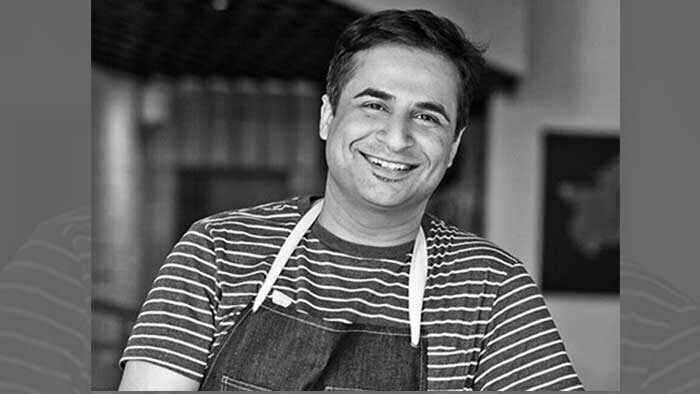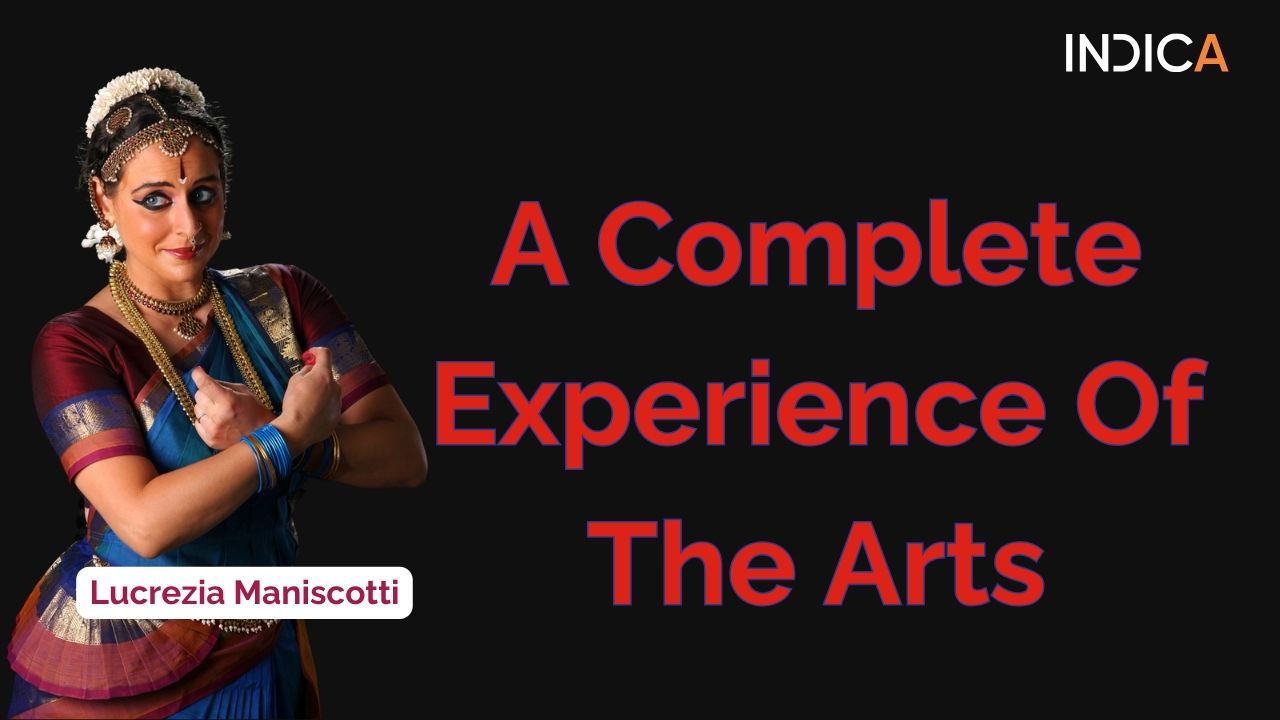No dish that comes out of his kitchen is made without love and respect. Those are the secret ingredients of Michelin Chef Suvir Saran.
Suvir Saran is an internationally accomplished chef, author, educator and food entrepreneur. His New York-based restaurant Devi became the first Indian restaurant in the US to receive a Michelin Star, besides other recognitions from the New York Times and New York Magazine. As an educator, Suvir has served as the Chairman of the Asian Culinary Studies for the Culinary Institute of America (CIA) and a member of the Nutrition Advisory Board at Brigham and Women’s Hospital, a teaching affiliate of Harvard Medical School. He is also an author of three books – Indian Home Cooking, American Masala and Masala Farm. In 2019, he opened The House of Celeste, a fine-dining restaurant in Gurugram, which celebrates the rich legacy of traditional food recipes, passed down over generations.
Suvir Saran has presented Indian cuisine to the world in an exquisite yet demystified manner, thus appealing to global sensibilities. Through his many endeavours, Suvir tells the stories of India’s culinary tradition that is steeped in history and holds nuance in discovery.
In this interview, Suvir talks about his journey, his love for Indian cuisine and the need to appreciate Indian culinary heritage and wisdom at home to make the country a global culinary leader, while being rooted in the country’s traditions and wisdom.
A Chef is Born!
From the youngest age, Suvir found the kitchen as his safe and spiritual haven. Family and friends, neighbours and not-so-frequent visitors, all remember Suvir as having something to do with food – be it learning how to cook, peeling and slicing vegetables or setting the dining table. Sometimes, the young Suvir would also teach others how to cook. If for most young kids, helping at the kitchen seemed like a tedious task, for Suvir Saran anything to do with food was entertainment. He was certainly involved at his home – from ironing napkins to lending a helping hand at everything his mother did – but he also helped his relatives who would invite Suvir over meals to their homes.
The love for food and feeding was innate to Suvir Saran. The pandit ji, who was in charge of the kitchen brought discipline to the act of cooking, while the ladies of the house poured all their love in every single dish prepared. “Like in many Hindu families, every meal that was cooked was first offered to the deities at home, making the entire process of cooking sacrosanct, an act of divine.”
However, a career in cooking wasn’t Suvir’s first preference. He went to study arts first in Mumbai and then in New York. It was here that it all begin.
Early Beginnings
As much as Suvir enjoyed photography and visual arts in his university, he was equally passionate about hosting friends and others. “The constant through all these moments of my life was sitting at a table and eating or sharing or providing for others. It was carrying forward our ethos of atithi dev bhava. And I indeed realised the fastest way to a person's heart and mind was through the tummy. So be it knitting or painting or cooking or even singing, everything came from within. I did not need external tools to perform."
However, this changed when Suvir arrived in New York to study graphic design. ‘The hands had been replaced by computers for bringing design interventions. So, I found myself gravitating and finding more greater pleasure and joy in cooking and sharing homemade meals, all made by hand.” This was also how Suvir continued his family tradition of dining at the table and sought to introduce his American friends to this practice. These were some dreamy memories that his friends would cherish forever.
“So that was the mantra that excited me and that's how I transitioned from art to food because it was a logical segue.”

Suvir Saran with Hari Kiran Vadlamani, Founder, Indic Academy at The French Laundry, California
Suvir’s Food Philosophy
His creations enliven the deeper meanings of chappan bhog and naivedyam. For Suvir, it is not just cooking for the sake of it, but rather cooking mindfully–being present with all consciousness at that moment, appreciating the gifts that nature is giving in its bounty. The rasas give richness to his meals while a balanced preparation ensures there is a perfect antidote to everything on the plate. His dishes are pleasing to the sensibilities of his guests in all manners.
“You eat with your eyes before you eat with your mouth and lips and tongue. If your food isn’t attractive, you would not find it fulfilling either. So, a food which is fascinating to look at and delicious at the same time offers satiety like nothing else.”
Suvir made it my point to make beautiful looking food, seasonal food, regionally diverse food, food that came with stories of his motherland and invoked nostalgia.
“A meal when served should be a combination of every color, different textures and temperatures; a variety of grains and greens; legumes and beans; vegetables, and dairy. For a chappan bhog to be a celebration, there need to be 56 gustatory viewpoints. I made it a mission that if not 56, I would give them as many distinct culinary pleasures and experiences as possible. In doing this, eating was no longer just an act of ingesting food into the mouth but situated every dish that I served in a cultural context. This was a context that appreciated the past, laid hopes for the future and made peace with the present.”
This is my way of looking at the world, and also how I would relate to the Vedantic philosophy. When I cook for others, I am reminded of Vasudhaiva Kutumbakam, that we are one people – everybody with consciousness is one and equal, you have to think of the planet as a shared resource. Living and acting responsibly today so it shapes up tomorrow and that was the rhythm, the Indian sensibilities that I was bringing during my time in the US.
Suvir brought a new lense of sharing Indic values and ethos with the local Americans – through his food. “This certainly got me a lot of recognition and opened opportunities – from receiving compliments as the best food ever in Manhattan to catering at some of the most high-end parties and events to a global culinary partnership with Sodexo. I also wrote my first book in 2004, Indian Home Cooking: A Fresh Introduction to Indian Food, which sold quarter million copies.”

Devi, the First Indian Restaurant to Win Michelin Star
A self-taught chef on a tryst with cooking and with himself, Suvir not only introduced a new culinary culture in the US but also achieved unprecedented success. The first year Michelin guide came to America, Suvir was one of the eighteen to receive the Michelin Star.
His restaurant, Devi was the first and only non-Italian, non-European, non-American restaurant to receive this recognition. The choice of name was inspired and dedicated to bhu devi or mother earth, which provides nourishment to vegetables, plants and animals. “For me, the mother is the beginning of life, the nurturer of life, the giver of life, the protector of life and Mother Earth gave us all the bounty that we use at the table and my restaurant Devi was an homage to the mother. Besides, the two-syllable word is easy to pronounce, easy to recall and I wanted people to think of my restaurant when they thought of Indian food.”
On winning the Michelin star, “it is important as it tells that the Indian cuisine deserves no less and me getting it also opens the doors for many other Indian restaurants to get the same. It gives the possibility for non-white chefs to dream. It certainly does contribute to the recognition of the restaurant and increases sales as well.”
“At the same time, it is not the end of the world. Winning the Michelin Star hasn’t changed who I am. Besides, food is like art, subjective to sensibilities. The Michelin guide may be exciting for one, but some people would hate it and never go by it. So, a Michelin guide is not the only source for gaining popularity and increasing customer traffic, but it does place Indian cuisine prominently across the world.”
Practicing Gastrodiplomacy: Indian Authenticity on the Plate
For Suvir Saran, the identification of Indian food with only dal maakhani and butter chicken was exasperating. “We need to be authors of our own story, and cannot allow others to do so. I opened Devi as a response to introduce refined and healthy eating habits from India and breaking the stereotype that Indian food is always unrefined and largely unhealthy. Back in 2018, I brought organic and natural produce, when these were not even buzzwords. By pricing my butter chicken at an exorbitant rate, I was teaching my customers to move beyond the mundane and order other things from the menu. This is what I call menu engineering.”
Investing in the menu, defining the vocabulary around food and serving food with pride is as essential as cooking a perfect meal. “We changed our menu four times a year and added a couple of specials every week. My customers who would visit repeatedly never got bored of coming.”
Food as Soft Power
Multiple countries, be it Italy, Greece, France or Spain, practice diplomacy over dining tables. “Food diplomacy is sure to bring much more rewards of long-term lucrative success than any other. You're not using bullets in muscle and brute power of any kind, but winning over minds and spreading your culture. So, I think India should be investing in itself and it begins by Indians educating themselves about what Indian food is, appreciating and understanding the heart and soul of Indian home cooking.”
Drawing attention to the fact that India never had a restaurant environment and the culture, Suvir proudly says, “we were a people that tried cooking at home by ourselves and believed that all our preparations were offerings to the divine and so everyday cooking was also made with deepest regards and respect to the nature.”
We must take pride in our food culture and understand that bringing it to the 21st century with updated styles of cooking and presentation. Sharing our wisdom with the world, telling them of our food history and food culture should be so compelling that when we talk about our culinary heritage, the world listens and follows. Because it can change their lives.
“For the consumer to see value in Indian cuisine, it is important for institutions and research centers, such as yours, to create awareness towards our culinary heritage. Supporting and promoting the culinary experts, chefs, younger entrepreneurs is one aspect of it. The other important thing would be to host summits and conferences that drive conversations and build momentum around healthier and more mindful living choices. Such occasions enable us to inculcate the Vendatic way of thinking and living in a manner that’s both responsible, rewarding and fulfilling as well as in sync with what the needs of the planet will be tomorrow. The choices you share with the world today should become the opportunities for the world to willingly embrace tomorrow.
“We have to become ambassadors of our nation. There is a need to present the old India in a new exciting way and this is a thrilling opportunity, a time like no other to rise to the occasion. Our old cooking is exactly what modern-day cooking is – being told about food being plant-based, while Indians are mostly vegetarian; it should be rich in fiber and legumes and lentils and beans, we already do that; it should be rich and green, we already have the know-how to cook with greens.
So, we just have to go into our past, not the last hundred years, but the years before the last hundred years, and we have all the answers to becoming culinary diplomats like none other.





